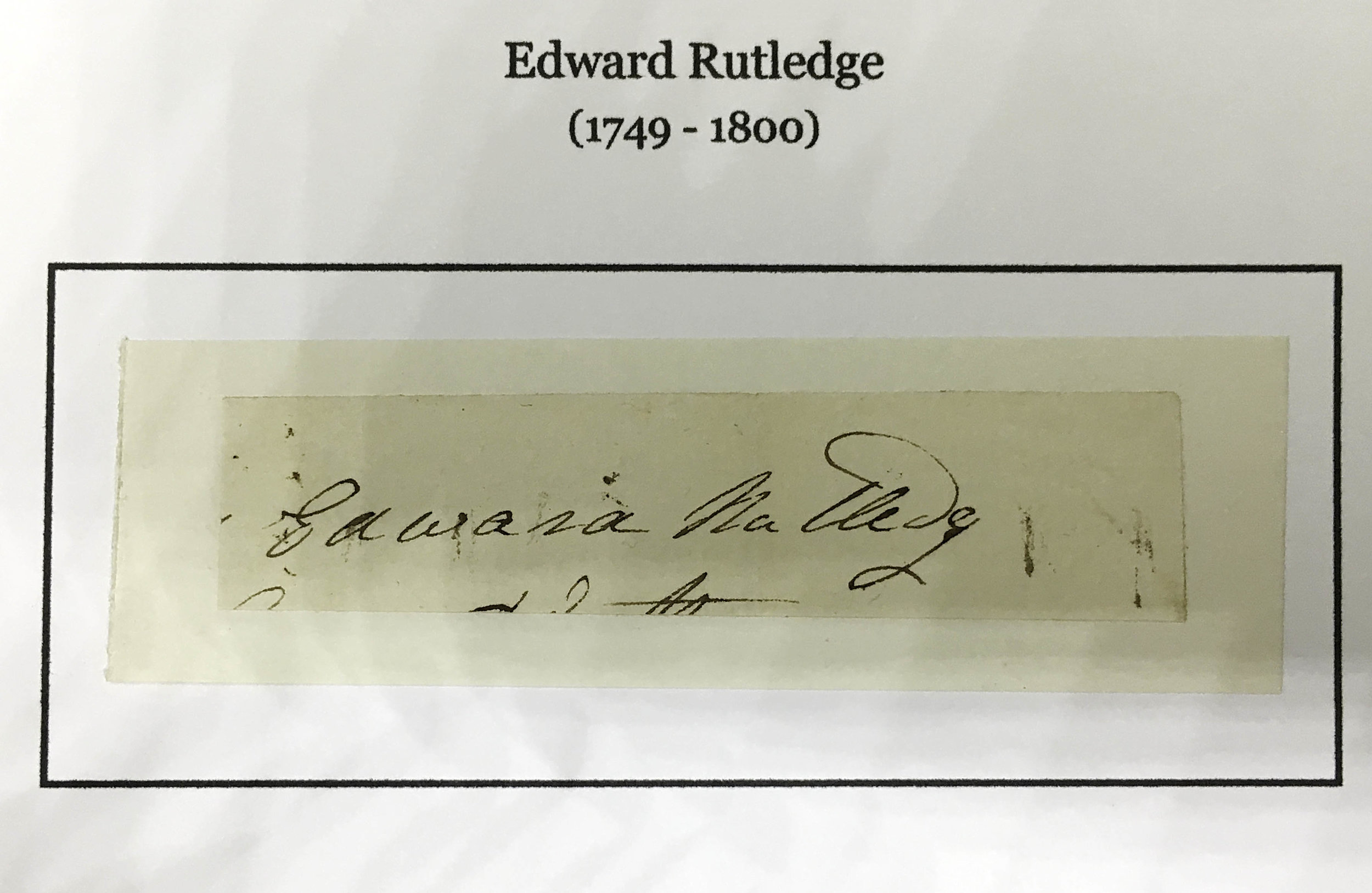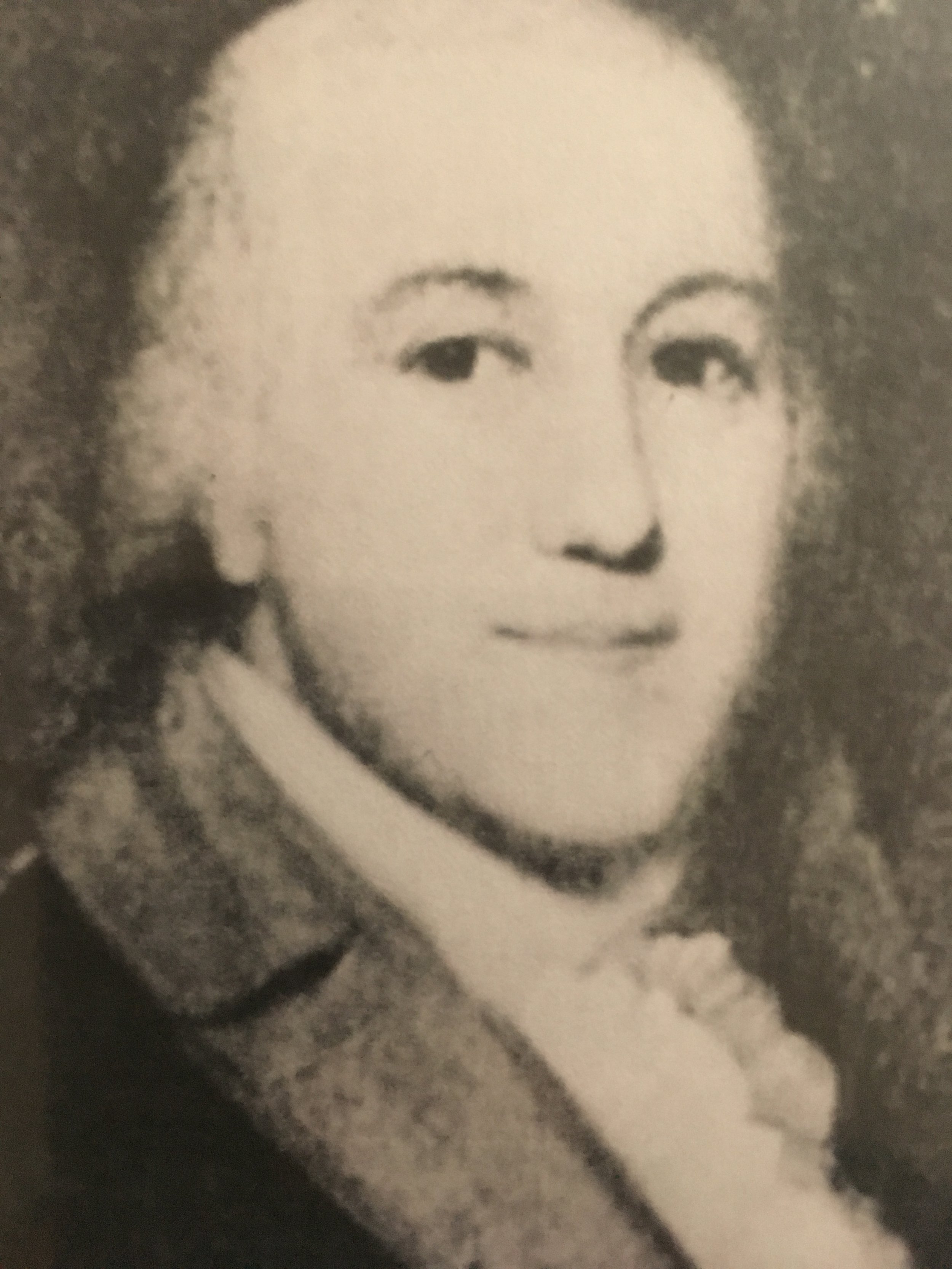Edward Rutledge (SC)
Edward Rutledge (November 23, 1749 – January 23, 1800) was an American politician, and youngest signatory of the United States Declaration of Independence. He later served as the 39th Governor of South Carolina.
During the American Revolution Rutledge served along with his brother John representing South Carolina in the Continental Congress. He worked to have African Americans expelled from the Continental Army. Although a firm supporter of colonial rights, he (as a delegate) was instructed initially to oppose Lee's Resolution of independence; South Carolina's leaders were unsure that the time was "ripe." At age 26 he was the youngest delegate to sign the Declaration of Independence.
He returned home in November 1776 to take a seat in the General Assembly. He served as a captain of artillery in the South Carolina militia, and fought at the Battle of Beaufort in 1779. In May 1780, Rutledge was captured along with his co-signers of the Declaration of Independence, Arthur Middleton and Thomas Heyward during the siege of Charleston. They were released during a prisoner exchange in July 1781.
After his release he returned to the General Assembly, where he served until 1796. He was known as an active legislator and an advocate for the confiscation of Loyalist property. Like John Rutledge, Edward Rutledge opposed the Jay Treaty and the Anglophilic stance he perceived in the Federalist Party. As an elector in the 1796 Presidential Election, Rutledge voted for the two Southern candidates, Republican Thomas Jefferson and Federalist Thomas Pinckney. Rutledge had not been close with the eventual victor John Adams dating back to their days in the Continental Congress, but he approved of Adams's defense policies towards France during the Quasi-War. The opposition afforded Adams's measures by Vice President Jefferson and the Congressional Republicans angered Rutledge because he now saw the Republicans as more partial to France than to American interests, a situation similar to the pro-British feelings he sensed in the Federalists during the Jay Treaty debates. Rutledge thereafter ceased communication with Jefferson. Rutledge served in the state senate for two years, then was elected governor in 1798.
Governor Rutledge, while attending an important meeting in Columbia, had to be sent home because of his gout. He died in Charleston before the end of his term. Some said at the time that he died from apoplexy resulting from hearing the news of George Washington's death
Source: Wikipedia: https://en.wikipedia.org/wiki/Edward_Rutledge



